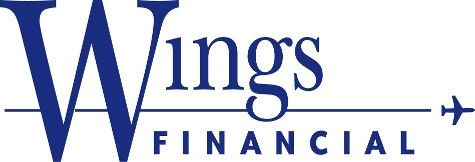Wings Uplifts Students With Financial Knowledge
April may be National Financial Literacy Month, but a locally-based business has been working with south-of the river schools to help young people better understand saving and spending all year long.

Originally posted on www.hometownsource.com
Wings Financial Credit Union, headquartered in Apple Valley, provides materials free of charge to several Rosemount-Apple Valley-Eagan schools. Representatives visit classrooms, host reality fairs and give presentations.
“Everything that we do is for free,” said Trysh Olson, education and youth manager at Wings. “Teachers don’t need to apply for grants or anything like that. We provided free financial education to schools throughout the Twin Cities — kindergarten through 12th grade.”
As part of their financial education efforts, Wings sponsors a software platform called Banzai. The program uses real-life simulations to introduce students to adult financial dilemmas. The curriculum is used by over 35,000 teachers across the nation, and Wings sponsors the program so teachers at nearly 200 schools throughout the Twin Cities and surrounding suburbs can use it at no cost.
“It’s an online simulation for budgeting,” Olson said. “FACS teachers, social studies, economics — teachers can use it to teach the concept of budgeting.”
Teachers can have students complete the program during class time in a lab-like simulation setting. They can also assign it as homework and track each student’s progress.
Pat Iverson, a social studies teacher at Apple Valley High School, has used the Banzai program for several years in her civics and economics classes.
“It’s really well done. I used it with my freshmen and with my seniors,” she said. “Budgeting is something they might get in more than one class, but it is always something we can talk more about.”
Her freshmen use the program to reframe the way they view earning, spending and saving money.
“In civics we relate it to citizenship,” Iverson said. “It’s about being a good steward of your money, understanding how the tax system works, the idea that we all have resources and how we use them impacts our life and other people’s lives as well.”
Iverson uses the program with her seniors to help them think about making choices with their money.
“Right now, maybe they are paying for a car or saving for college, and that is what they save for. Then, they start to learn about other expenses,” she said.
Insurance, taxes and rent are a few of the expected costs they talk about. They discuss unexpected costs, such as medical bills or home repairs, as well.
“When they are making their budget, it’s a riot,” Iverson said. “Kids are like: ‘are you kidding me?’ They didn’t know how much it costs to feed kids, to pay for housing or apartments. They see the scarcity of the resources and go, ‘OK, this does matter to me.’ ”
For Iverson, making the material relevant and meaningful to her students is part of an effective lesson.
“If someone walks in with a Caribou or a Starbucks, we talk about extraneous costs. ‘If you buy a coffee three or four times a week, how much are you spending?,’ ” Iverson said. “We try to bring in that relevancy. ‘What are you willing to pay for a pair of jeans?’ It’s all about what you value.”
Iverson said the biggest lesson her students learn from the Banzai program is gratitude for the people who have taken care of them and paid their way thus far.
“I see them have a new appreciation for their parents and how hard people have to work to take care of a family,” Iverson said.
It’s because finances are so relevant to young people’s lives that Wings continues to sponsor outreach programs in local schools.
“We need to make a difference out there for kids. There’s a lot of families out there that aren’t financially sound or don’t want to share with kids,” Olson said.
“Finances are a skillset we all need to use and have when we are adults. Saving money at an early age and spending wisely — it’s important for us to make sure we can share this information.”
Contact Amy Mihelich at amy.mihelich@ecm-inc.com.